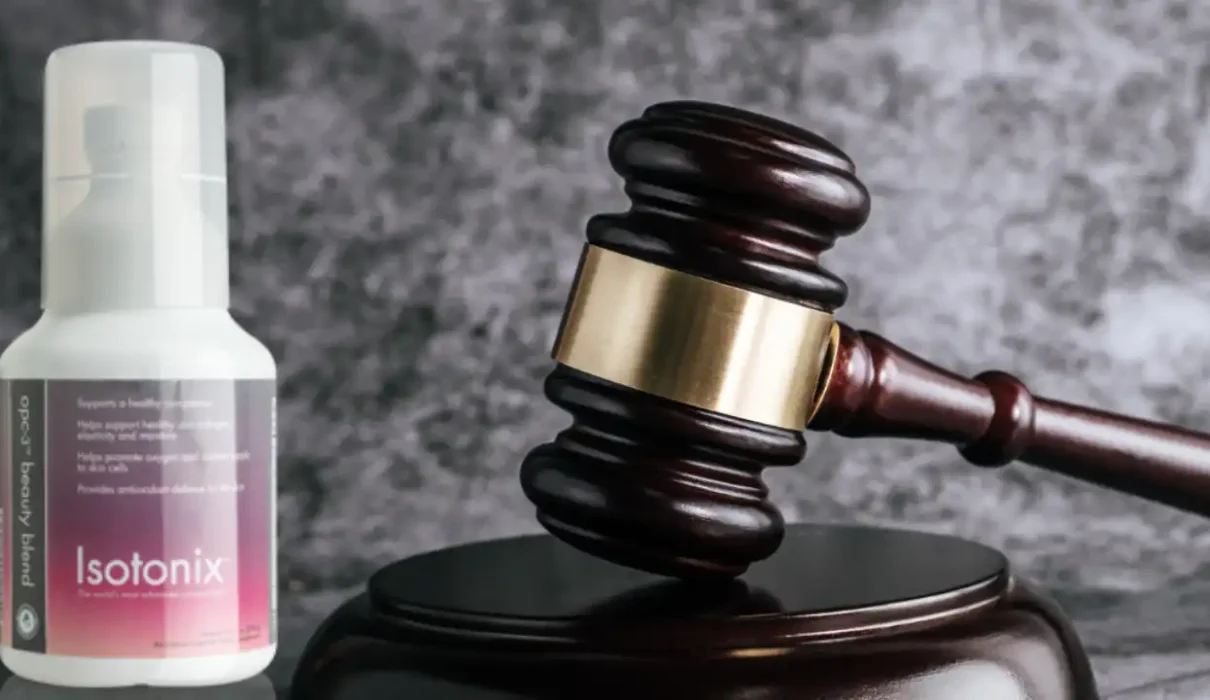Isotonix, a popular isotonix lawsuit brand known for its nutritional supplements, has been the subject of a significant legal battle that has garnered attention in the health and wellness industry. This lawsuit has raised several questions about the company’s practices, product claims, and consumer protection. In this article, we will delve into the details of the Isotonix lawsuit, examine the key issues involved, and explore the potential consequences for the company and its consumers.
What is Isotonix?
Isotonix is a brand of dietary supplements that prides itself on offering products with advanced absorption capabilities. The company’s unique formulation uses isotonic delivery, which claims to enhance the bioavailability of nutrients, making them more effective for the body. The product range includes vitamins, minerals, antioxidants, and other nutritional supplements aimed at promoting overall health and wellness.
Founded in the 1990s, Isotonix quickly gained popularity in the wellness market due to its focus on providing high-quality, easily absorbed supplements. The company marketed its products with a focus on convenience, claiming that its supplements were more easily absorbed than traditional pills or capsules, thanks to the isotonic nature of the formulas. This claim of superior absorption has been a major selling point for the brand.
However, with such claims come scrutiny, and the Isotonix lawsuit centers around allegations that the company may not have fully delivered on its promises. The legal battle stems from accusations that the company misrepresented its products, particularly concerning the health benefits and efficacy of its supplements. As the lawsuit unfolds, both consumers and investors are left wondering what impact this case will have on the future of Isotonix and its reputation in the market.
The Legal Case: An Overview of the Isotonix Lawsuit

The Isotonix lawsuit began when a group of consumers filed a class action lawsuit against the company, accusing it of misleading advertising and false claims regarding the effectiveness of its products. The plaintiffs allege that Isotonix falsely advertised the health benefits of its supplements, specifically exaggerating the extent to which they could improve users’ health and well-being.
One of the main allegations is that Isotonix’s marketing misrepresented the absorption rates of its products, claiming that they were significantly more effective than competing supplements without providing adequate scientific evidence to back these claims. Consumers argue that the company’s advertisements and promotional materials led them to believe that the products were a superior option, resulting in them making purchasing decisions based on these misleading claims.
The lawsuit was filed in response to concerns over consumer protection and the need for companies to provide accurate, truthful information about the products they sell. The plaintiffs contend that Isotonix’s practices may have violated several consumer protection laws, including those related to false advertising and deceptive business practices. The legal case has gained significant attention due to the growing consumer awareness of product claims and the increasing importance of transparency in the health and wellness industry.
Key Legal Issues and Claims in the Lawsuit
The Isotonix lawsuit raises several key legal issues, particularly concerning false advertising, breach of contract, and health and safety concerns. Let’s explore each of these aspects in more detail.
False Advertising and Deceptive Claims
One of the most significant claims in the lawsuit is related to false advertising. The plaintiffs argue that Isotonix misrepresented the effectiveness of its products by overstating the benefits and making claims that were not supported by scientific evidence. The company promoted its products as being more bioavailable and effective than traditional supplements, which allegedly misled consumers into purchasing the products based on these claims.
False advertising laws are designed to protect consumers from misleading and deceptive business practices. In this case, the plaintiffs believe that Isotonix violated these laws by making exaggerated claims about the absorption and health benefits of its products. If the court finds that the company did indeed engage in deceptive advertising, Isotonix could be held liable for damages and required to make changes to its marketing practices.
Breach of Contract
Another key issue in the Isotonix lawsuit involves potential breach of contract. Consumers who purchased the company’s products may have done so based on the belief that they were receiving a product that met the advertised claims. If these claims were false or misleading, it could be argued that Isotonix breached its contract with consumers by failing to deliver the promised results. Breach of contract claims can be particularly damaging to a company, as they may lead to significant financial penalties and a loss of consumer trust.
Health and Safety Concerns
In addition to the false advertising claims, there are concerns about the health and safety of Isotonix products. While the company’s supplements are marketed as being beneficial for health, the lawsuit raises questions about whether the products pose any risks to consumers. Some plaintiffs argue that Isotonix’s failure to provide sufficient information about potential side effects or contraindications could lead to harm, particularly if consumers use the products in conjunction with other medications or supplements.
Potential Consequences of the Lawsuit
The Isotonix lawsuit has the potential to result in several significant consequences for the company, ranging from financial penalties to reputational damage. Here are some of the potential outcomes that could arise from the legal battle.
Legal Outcomes
If the plaintiffs prevail in the lawsuit, Isotonix could face substantial legal penalties, including financial damages for misleading consumers. The company may be required to compensate consumers who purchased the products based on false advertising claims. In addition to monetary damages, the court may impose an injunction, requiring Isotonix to alter its marketing practices and ensure that future advertising is truthful and accurate.
Financial Implications
The financial impact of the lawsuit could be severe for Isotonix. If the company is found liable for false advertising and breach of contract, it could face significant fines and settlements. The cost of defending the lawsuit could also take a toll on the company’s finances. Additionally, if the lawsuit results in a large payout to consumers, Isotonix may need to adjust its pricing or product offerings to compensate for the financial burden.
Impact on Reputation
Perhaps the most significant consequence of the lawsuit is the potential damage to Isotonix’s reputation. The health and wellness industry is built on consumer trust, and any perception that a company has misled its customers can have long-lasting effects. If the lawsuit tarnishes the brand’s reputation, it could lead to a decline in sales, a loss of customer loyalty, and difficulties attracting new consumers.
Product Changes
In response to the lawsuit, Isotonix may be required to make changes to its product labeling, marketing materials, and claims. This could involve revising advertising language to remove exaggerated claims or providing more transparent information about the ingredients and health benefits of its supplements. Such changes could impact the company’s ability to market its products effectively, particularly if the legal case leads to increased scrutiny from regulatory bodies.
Isotonix’s Response to the Lawsuit
Isotonix has vigorously defended itself against the allegations in the lawsuit. The company has denied any wrongdoing, stating that its products are safe and effective, and that the claims made in its advertising are truthful and supported by scientific research. In response to the accusations, Isotonix has emphasized its commitment to consumer satisfaction and the integrity of its products.
Despite the legal battle, Isotonix has continued to market its products and defend its reputation in the public eye. The company has pointed to customer testimonials and positive reviews as evidence that its products deliver real health benefits. Additionally, Isotonix has stated that it is committed to working with regulatory authorities to ensure that its products meet all necessary standards.
Conclusion
The Isotonix lawsuit is a significant case that highlights the importance of transparency and truth in marketing within the health and wellness industry. The outcome of the lawsuit could have far-reaching consequences for the company, including isotonix lawsuit financial penalties, reputational damage, and changes to its product offerings. Consumers should stay informed about the case and be aware of their rights when it comes to purchasing health products.





